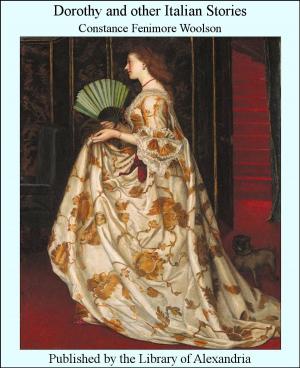The Duchess of Rosemary Lane: A Novel
Nonfiction, Religion & Spirituality, New Age, History, Fiction & Literature| Author: | Benjamin Leopold Farjeon | ISBN: | 9781465611307 |
| Publisher: | Library of Alexandria | Publication: | March 8, 2015 |
| Imprint: | Language: | English |
| Author: | Benjamin Leopold Farjeon |
| ISBN: | 9781465611307 |
| Publisher: | Library of Alexandria |
| Publication: | March 8, 2015 |
| Imprint: | |
| Language: | English |
It is a lovely morning in April. The last drops of a radiant shower have fallen, and Nature is smiling through her tears, as might a happy maiden in the sparkling face of her lover, who, suddenly and unexpectedly, has brought her joyful tidings. The titlark and the whitethroat, and other feathered visitors of spring, are flying hither and thither in glad delight, singing their blithest songs, and carrying rays of sunlight on their wings to illumine the summer nests which they are building. Joyously busy are these graceful citizens of the woods, and proud of their work; they chirp, and twitter, and exchange glad greetings, as they fly hither and thither, and when they rest from their labour of love on the sprays of the common beech, they seem to be sitting in bell-shaped thrones of emerald, while the dew upon the flowers of the silver birch glitters like drops of molten gold in the eye of the sun. Surrounded by these and myriad other evidences of spring, stands a fair and beautiful girl, herself in the spring of life. The name of the place is appropriate to her and to the season. Springfield is an enclosed park of forty acres, the beauties of which are jealously hidden from vulgar gaze. It is the most picturesque portion of an important estate, at present in the possession of Lady Josephine Temple, who lies sick in the quaint old house yonder, built in the Elizabethan style, the designs for which are said to have been prepared by John of Padua. But John of Padua and all the historical associations of the house are as dead letters to Lady Temple, who has sufficient food for contemplation in her own immediate affairs and condition. The blinds of the room in which she lies are drawn down for the express purpose of shutting out the day, in accordance with the ancient formula, which provided that the sick should be depressed and weakened by dim light and silence, instead of cheered and strengthened by sunlight and cheerfulness.
It is a lovely morning in April. The last drops of a radiant shower have fallen, and Nature is smiling through her tears, as might a happy maiden in the sparkling face of her lover, who, suddenly and unexpectedly, has brought her joyful tidings. The titlark and the whitethroat, and other feathered visitors of spring, are flying hither and thither in glad delight, singing their blithest songs, and carrying rays of sunlight on their wings to illumine the summer nests which they are building. Joyously busy are these graceful citizens of the woods, and proud of their work; they chirp, and twitter, and exchange glad greetings, as they fly hither and thither, and when they rest from their labour of love on the sprays of the common beech, they seem to be sitting in bell-shaped thrones of emerald, while the dew upon the flowers of the silver birch glitters like drops of molten gold in the eye of the sun. Surrounded by these and myriad other evidences of spring, stands a fair and beautiful girl, herself in the spring of life. The name of the place is appropriate to her and to the season. Springfield is an enclosed park of forty acres, the beauties of which are jealously hidden from vulgar gaze. It is the most picturesque portion of an important estate, at present in the possession of Lady Josephine Temple, who lies sick in the quaint old house yonder, built in the Elizabethan style, the designs for which are said to have been prepared by John of Padua. But John of Padua and all the historical associations of the house are as dead letters to Lady Temple, who has sufficient food for contemplation in her own immediate affairs and condition. The blinds of the room in which she lies are drawn down for the express purpose of shutting out the day, in accordance with the ancient formula, which provided that the sick should be depressed and weakened by dim light and silence, instead of cheered and strengthened by sunlight and cheerfulness.















